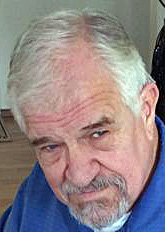
 [Spoiler alert: This column is a reprint of one written in December of 2019, before most of us had ever heard of COVID-19. How our thoughts of Christmas celebration have been altered since that time, which seems so very long ago!]
[Spoiler alert: This column is a reprint of one written in December of 2019, before most of us had ever heard of COVID-19. How our thoughts of Christmas celebration have been altered since that time, which seems so very long ago!]
Some are suggesting we resort to small, scaled-back, restrained observances. Some are thinking there’s nothing to celebrate. Many are crying, “Enough already!” All of us desperately yearn for a return to some semblance of normalcy, often doubting that there can ever be such a thing.
We’ve all seen billboards and newspaper ads saying, “Let’s put Christ back into Christmas.” Back in the day, the argument seemed to be that Christmas had become so commercial and sometimes so downright pagan that Christians everywhere ought to concentrate on restoring the holiday to its former spiritual significance.
In the last couple of decades, though, the emphasis in these campaigns seems to be that with latter-day Supreme Court rulings, it is harder and harder to celebrate Christmas legally.
Every year some city or county or state government has to go through a tremendous legal battle to determine whether setting up a nativity scene or a cross or a big star is constitutional.
Sometimes they reach a compromise: you can set up your crèche if we can also have a menorah. But that only deals with two religions. What if someone wants a crescent, or a statue of Buddha, or God knows (can I say that?) what else.
In Denver ten years ago, a judge said there was nothing wrong with the manger scene being displayed because “it had become simply a symbol of the holidays in the same way that Santa Claus had.”
Evidently the birth of Jesus had become as secular as Santa Claus and therefore was constitutional.
The problem, of course, comes from the First Amendment to the Constitution (the one guaranteeing free exercise of religion but forbidding the establishment of a state religion), and its controversial attendant, the “Separation of Church and State.”
How shall we interpret these? Everyone on both sides declares it to be an easy decision: “It’s obvious my interpretation is the right interpretation.” Somewhere along the line someone always brings up “the intent of the Framers of the Constitution.”
I will not attempt to settle that dispute. But there are a few questions I’d like to ask. What would the Pilgrims do? After all, history and tradition have almost made them into religious icons in America. Would they perhaps be the guide to the proper celebration of Christmas?
Christopher Jones, the master of the Mayflower, wrote in the ship’s log on Dec. 25, 1620,
“At anchor in Plymouth harbor; Christmas Day, but not observed by these colonists, they being opposed to all saints’ days….A large party went ashore this morning to fell timber and begin building. They began to erect the first house about twenty feet square for their common use, to receive them and their goods….No man rested all that day.”
Hmmm, well maybe they were just too busy to celebrate. Let’s look in on them a year later, Dec. 25, 1621, and read a Pilgrim’s diary:
“When [Governor Bradford] came home at noon from work, he found them in the street at play; some pitching the barr [throwing weights] and some at stoole-ball [an early form of cricket], and such like sports. So he went to them and took away their implements and told them what they were doing was against his conscience, that they should play while others worked.
“If they made the keeping of Christmas a matter of devotion, he said, then let them stay in their houses, but there should be no gaming or reveling in the streets.”
In Massachusetts, it was made illegal to take Dec. 25th off work in 1659, and a five-shilling fine was levied against those who did. This law stayed on the books for 22 years, and Boston public schools stayed open on Christmas day until as late as 1870.
In 1836, Alabama was the first state to declare Christmas a legal holiday, and not till 1885 were all federal workers given the day off on Dec. 25.
Christmas was not considered a holiday at all until the fourth century A.D., and then only to accommodate the state religion honoring the birthday of the pagan Mithras.
It was a common practice for the newly-established state religion mandated by Constantine to assimilate pagan holidays into Christianity; for example, Easter and Halloween.
Leonard Peikoff, who founded the Ayn Rand Institute, says, “It is time to take the Christ out of Christmas, and turn the holiday into a guiltlessly egoistic, pro-reason, this-worldly, commercial celebration.”
He blames Christians for taking a “perfectly good commercial pagan holiday,” and turning it into a religious exercise. From the standpoint of chronological history, he’s right. After all, we all learned by the third grade that Jesus wasn’t really born on Dec. 25.
So, am I suggesting everyone stop celebrating Christmas? Absolutely not. But let’s stop pretending that the secular world considers it anything but an opportunity to get and give presents and boost the economy.
And if you still believe, as I do, that the most important thing about Christmas is not gifts, the economy, cheery greetings—no, not even peace, joy, and brotherhood, but to honor the birth of the only begotten Son of God, who came to deliver us from our sins, let’s stop confusing the two festivals.
And for heaven’s sake, let’s stop making Christmas and this hideous pandemic a political football!
No Comments
Leave a comment Cancel